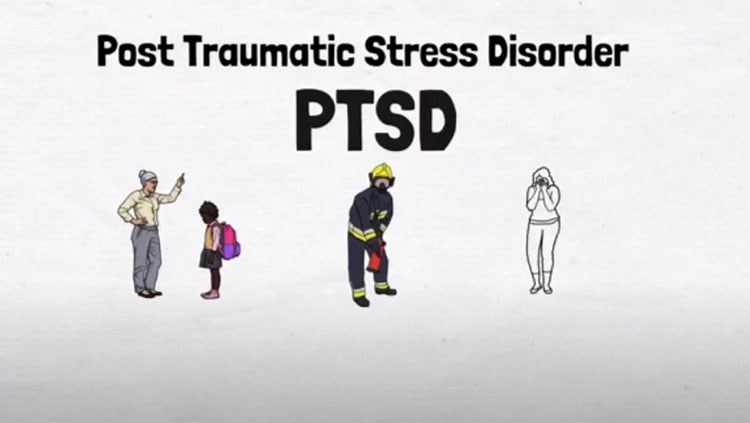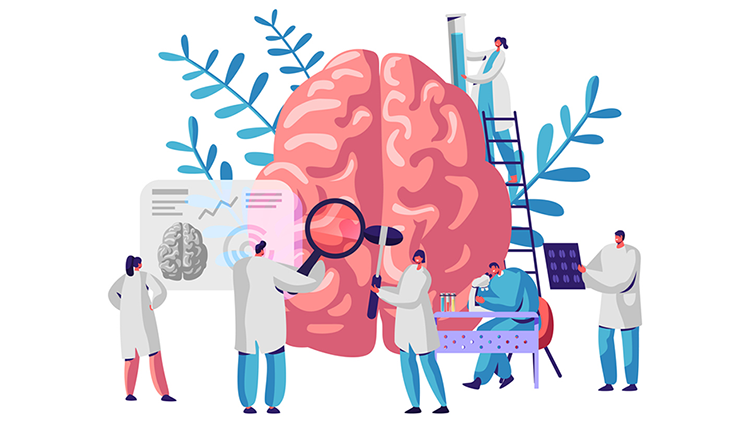Scientists Spot Signs of Depression in Blood and Brains
- Published6 Feb 2024
- Author Freda Kreier
- Source BrainFacts/SfN

Scientists are beginning to detect biological markers indicative of depression. The findings presented at Neuroscience 2023 in Washington, D.C., found tangible differences in the blood and brains of children and teens with depression.
These biological differences could one day help diagnose depression by providing material evidence of mental illness — much like other diagnostic tests do for monitoring blood pressure or diabetes.
Depression Insights from Blood Tests
Depression is the leading cause of disability worldwide. Children experience low rates of depression but that all changes during puberty, especially for women, who experience depression at twice the rate of men cross-culturally.
Teenagers who experience depressive episodes are more likely to experience them later in life and develop substance use issues, said Cecilia Flores, an adolescent neurodevelopment researcher at McGill University. “We know that adolescents are particularly prone to depression,” she said during the press conference. “But not all of them are equally vulnerable.” Exactly what happens during adolescence to trigger depressive episodes isn’t clear. Genetics, social pressures, changing bodies, and many other factors probably play a role.
Scientists have also found chronic or intense stress is a likely trigger for depressive episodes. Around one in five teenagers in the United States reported having suicidal thoughts before the pandemic. This statistic has likely grown worse, with some research suggesting depression and anxiety worsened for teens during and after the pandemic, likely as a response to stress and social isolation.
To work out who was most at risk, Flores and her colleagues collected blood samples from 62 teenagers, around half of whom were diagnosed with depression. The team then compared the levels of microRNA — which helps control how much a gene is expressed — in the blood of teenagers with and without depression.
Several genes active in neurodevelopment and cognitive function in the brain were upregulated in teens with depression. What's more, the level of these microRNAs in the blood could help predict the severity of depressive symptoms in the teens nine months later.
This suggests a blood test could one day be used to find children and teens most at risk of developing severe depression. These tests would be minimally invasive, just requiring a prick of the finger. And while it won’t replace traditional methods of diagnosis any time soon, “this work has the potential to shape early intervention strategies,” Flores said.
Expanding Biomarkers for Depression
Other groups reported finding biological signs of depression in the brains of young people. A group of University of Minnesota researchers found the salience networks — a series of neural connections in the brain supporting emotional regulation (among other things) — occupied much more real estate in the brains of children with higher depression scores. Meanwhile, kids with a higher genetic risk of depression also tended to have less grey matter, according to preliminary data out of the Yale School of Medicine.
Scientists have previously found some biological signals of the disorder. But as a whole, "we don't really have a biomarker for depression," said Sanju Koirala, a developmental cognitive neuroscientist at the University of Minnesota in a phone interview after the press conference. So, “I would say all these studies are pretty novel,” she said.
Depression is more openly discussed today than in the past. But there is still a burden on those who suffer from the condition — especially outside of the West — to prove their condition is something to be taken seriously, she says. Koirala, who is originally from Nepal, says these findings are exciting because globally, “depression is sometimes not even considered a real disorder. People think you can snap out of it or feel better after you go for a walk.”
Being able to visualize your depression can make all the difference. “We see a lot of patients who suffer from depression [ask], 'Can you show me where it is?'" says Koirala. So, “I think having a biological marker gives you a real understanding that something has actually changed in the brain.” Since depression is likely several conditions rolled into one, parsing through biological markers could help researchers better understand the varieties of depression and how to better treat them.
CONTENT PROVIDED BY
BrainFacts/SfN



















